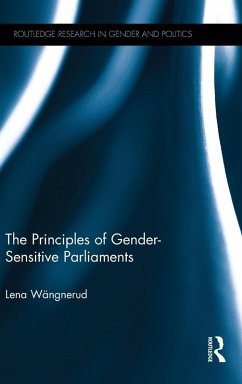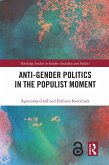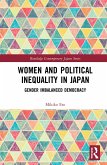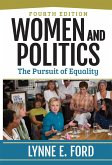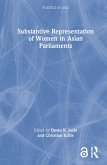Gender serves as a lens that makes visible important issues in the field of representation: Whom do elected politicians represent? What is at stake in the parliamentary process? What do we know about the interplay between parliaments and the everyday lives of citizens? It is widely understood that women's presence in government matters but we need to understand the conditions under which it matters more clearly. Using Sweden as a case study, a country where the number of women elected to the national parliament has steadily risen since the 1970s, Lena Wängnerud presents a novel approach on which characteristics inside a parliament help translate physical representation into substantive representation for women. Using three guiding principles: (i) the implementation of equal opportunities for women and men to influence internal parliamentary working procedures; (ii) the creation of room for women's interests and concerns on the political agenda; and (iii) the production of gender-sensitive legislation, Wängnerud shows what are the necessary conditions for women's needs, interests, and concerns to be adequately integrated into parliamentary processes. The Principles of Gender-Sensitive Parliaments book adds fuel to all these classical debates within the field of political representation and will bring attention to a wider audience on why electing women matters.
"Not just a book about sex, gender and the Swedish Parliament, Lena Wängnerud confronts the contemporaneous challenges of political representation, women's interests, masculinized political parties, and feminist institutionalism. A simple but nonetheless elegant argument is made: gender sensitive parliaments are constituted by gender sensitive parties, themselves made up of gender sensitive individuals. Marshalling extensive and persuasive data, Wängnerud identifies the individuals (male and female), institutions (especially parties), and wider contexts conducive to a gender sensitive politics. Any gender equality effect of the presence of women in parliaments, including the Swedish one, is never simply about numbers. A politics of presence is not enough. Changes, she writes, 'do not just happen'. Politics and gender scholars would do well, then, to apply her politics of feminist awareness approach so as to better understand the complicated relationship between women's descriptive and substantive representation." -Sarah Childs, University of Bristol
"This excellent book turns the usual, unanswerable question, "Do women make a difference in politics", into empirically answerable questions of the conditions for gender-sensitive parliaments."-Drude Dahlerup, Stockholm University Sweden.
"This excellent book turns the usual, unanswerable question, "Do women make a difference in politics", into empirically answerable questions of the conditions for gender-sensitive parliaments."-Drude Dahlerup, Stockholm University Sweden.

